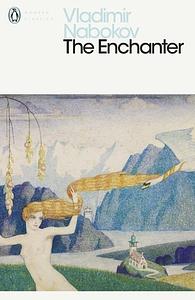You need to sign in or sign up before continuing.
Take a photo of a barcode or cover
dark
reflective
tense
medium-paced
Plot or Character Driven:
Character
Strong character development:
No
Loveable characters:
No
Diverse cast of characters:
No
Flaws of characters a main focus:
Yes
Literally the blueprint for Lolita :/ it’s so much more explicit than Lolita, the imagery in this book is so beautiful yet disgusting :(
tense
fast-paced
Plot or Character Driven:
A mix
Strong character development:
No
Loveable characters:
No
Diverse cast of characters:
No
Flaws of characters a main focus:
Complicated
Graphic: Child abuse, Pedophilia
dark
funny
fast-paced
Plot or Character Driven:
A mix
Strong character development:
No
Loveable characters:
No
Diverse cast of characters:
No
Flaws of characters a main focus:
Yes
Not sure how to rate this, to me it does feel very much like a half-explored idea in comparison to Lolita. It seems unfair to judge it against something else rather than by its own merit, but it is shadowed by Lolita. Overall I found it abrupt and almost shallow (this is not quite the word I want, especially as reading this as when I read Lolita, I had the sense that the writing was to some extent going over my head—but shallow is my best approximation at describing how the themes felt introduced but unexplored).
My latest Nabokov and his last Russian language effort in long fiction. This is a kind of precursor to [b:Lolita|7604|Lolita|Vladimir Nabokov|https://i.gr-assets.com/images/S/compressed.photo.goodreads.com/books/1377756377l/7604._SY75_.jpg|1268631] (which I haven't read). It's also a pedophile story, written in 1939 in France (as WWII kicked off) in perfect Russian prose, apparently shared around a little, but it wasn't published and all copies and versions were lost. A single manuscript was rediscovered in the early 1980's, and was translated in 1985 by Vladimir Nabokov's son, Dmitri. It runs 77 pages in this paperback.
It's a terrific little story, funny on the surface, obviously pretty dark underneath. There is a lot of play in the way the story works out. The unnamed pedophile is crafty but doesn't really seem to think anything through. He tries to reason with himself, using the phrase "providential sophistry" brilliantly. (I had to look up both words). Then he stumbles upon what he sees as a golden opportunity - a beautiful pre-teen girl whose mother is a terrible mother, widowed and dying. He explores a bit, and then marries the dying mother, intending to inherit his victim. As the book works it out, he almost accidentally becomes a good person, supporting the lonely dying mother. He always stays decent outward, while entirely an animal on the hunt inside. He gets very frustrated and bitter with each piece of good news, as the mother stays well for a bit. Alas, things start to work out except that this story can only end it disaster.
Nabokov has many tricks here. I liked that the man first sort of plays god, manipulating everyone, but then suffers as he become subject to fickle fate. Things go his way and then they undermine him in humorous patterns, seriously messing with his patience and, well, his sense. It's such a playful touch, you almost forget all the harm he intends. The end feels a little rushed and convenient, but who knows which draft this was. An entertaining novella to end the year.
-----------------------------------------------
64. The Enchanter by Vladimir Nabokov]
translation: from Russian by Dmitri Nabokov, 1985
published: written 1939, found in the 1980’s
format: 113-page paperback
acquired: October
read: Dec 30
time reading: 2 hr 53 min, 1.5 min/page
rating: 4
locations: Paris and French Riviera
about the author: 1899 – 1977. Russia born, educated at Trinity College in Cambridge, 1922. Lived in Berlin (1922-1937), Paris, the US (1941-1961) and Montreux, Switzerland (1961-1977).
It's a terrific little story, funny on the surface, obviously pretty dark underneath. There is a lot of play in the way the story works out. The unnamed pedophile is crafty but doesn't really seem to think anything through. He tries to reason with himself, using the phrase "providential sophistry" brilliantly. (I had to look up both words). Then he stumbles upon what he sees as a golden opportunity - a beautiful pre-teen girl whose mother is a terrible mother, widowed and dying. He explores a bit, and then marries the dying mother, intending to inherit his victim. As the book works it out, he almost accidentally becomes a good person, supporting the lonely dying mother. He always stays decent outward, while entirely an animal on the hunt inside. He gets very frustrated and bitter with each piece of good news, as the mother stays well for a bit. Alas, things start to work out except that this story can only end it disaster.
Nabokov has many tricks here. I liked that the man first sort of plays god, manipulating everyone, but then suffers as he become subject to fickle fate. Things go his way and then they undermine him in humorous patterns, seriously messing with his patience and, well, his sense. It's such a playful touch, you almost forget all the harm he intends. The end feels a little rushed and convenient, but who knows which draft this was. An entertaining novella to end the year.
-----------------------------------------------
64. The Enchanter by Vladimir Nabokov]
translation: from Russian by Dmitri Nabokov, 1985
published: written 1939, found in the 1980’s
format: 113-page paperback
acquired: October
read: Dec 30
time reading: 2 hr 53 min, 1.5 min/page
rating: 4
locations: Paris and French Riviera
about the author: 1899 – 1977. Russia born, educated at Trinity College in Cambridge, 1922. Lived in Berlin (1922-1937), Paris, the US (1941-1961) and Montreux, Switzerland (1961-1977).
doamne, scriitura!!! cât de subtil e în a transmite idei mari prin cuvinte și gesturi mărunte. ador, ador, ador. mi-a plăcut mai mult decât lolita, poate pentru că finalul, poate pentru că sunt aduse față în față iluzia/nebunia/monstruosul și realitatea nefiltrată, într-un moment culminant. plăcerea și teama, dezgustul.
scurtă, dar damn nabokov sir u are top!!!
introducerea m-a făcut să plâng (vorbește despre inspirația pentru nuvelă)
scurtă, dar damn nabokov sir u are top!!!
introducerea m-a făcut să plâng (vorbește despre inspirația pentru nuvelă)
„Cum să ajung în acord cu mine însumi?” gândea el, atunci când se întâmpla să gândească. „Nu poate fi vorba de lascivitate. Carnalitatea brută este omnivoră; cea subtilă presupune saţietate, în cele din urmă. Aşadar, ce dacă am avut cinci sau şase aventuri normale – cum se poate compara neprevăzutul lor stupid cu flacăra mea unică? Care e răspunsul? Cu siguranţă nu e ca în aritmetica orgiilor orientale, în care tandreţea victimei este invers proporţională cu vârsta ei. O, nu, pentru mine nu este un nivel al unui întreg generic, e ceva într-un divorţ total de generic, ceva ce nu e mai preţios, ci nepreţuit. Atunci, ce e? Boală, infracţiune? Şi e compatibilă cu conştiinţa şi ruşinea, cu greaţa şi frica, cu autocontrolul şi sensibilitatea? Căci nu pot nici măcar să mă gândesc la a provoca durere ori a stârni o repulsie de neuitat. Prostii – nu sunt un violator. Limitele pe care le-am impus dorinţei mele mistuitoare, măştile pe care le inventez pentru ea când, în viaţa reală, evoc o metodă absolut invizibilă de a-mi sătura pasiunea, au o sofistică providenţială. Sunt hoţ de buzunare, nu spărgător. Deşi, poate, pe o insulă rotundă, cu mica mea femelă Vineri… (n-ar fi doar o chestiune de siguranţă, ci o autorizaţie de a deveni sălbatic – sau cercul este unul vicios, cu un palmier în centru?).
Ştiind, în mod raţional, că de fapt caisa de la Eufrat e nocivă numai în conservă, că păcatul e inseparabil de uzanţele sociale, că orice higiena îşi are hiena ei, mai mult, ştiind că acelaşi raţionament nu împiedică vulgarizarea celui la care de altfel accesul este interzis… abandonez acum toate astea şi acced către un plan superior.
Ştiind, în mod raţional, că de fapt caisa de la Eufrat e nocivă numai în conservă, că păcatul e inseparabil de uzanţele sociale, că orice higiena îşi are hiena ei, mai mult, ştiind că acelaşi raţionament nu împiedică vulgarizarea celui la care de altfel accesul este interzis… abandonez acum toate astea şi acced către un plan superior.
It was good for a novella. The pacing was appropriate. Similar to Lolita in many ways, but with many more comedic and over-the-top dramatic elements. Just like in Lolita, only the protagonist’s character is fully fleshed out, as they are both selfish men who have a singular goal in mind (basically horses with blinders). The ending seemed vaguely rushed.





